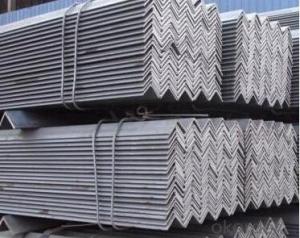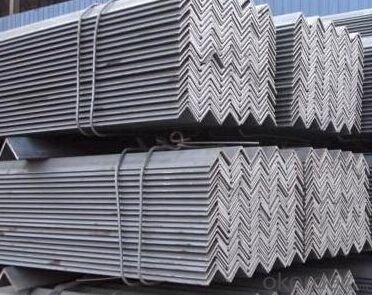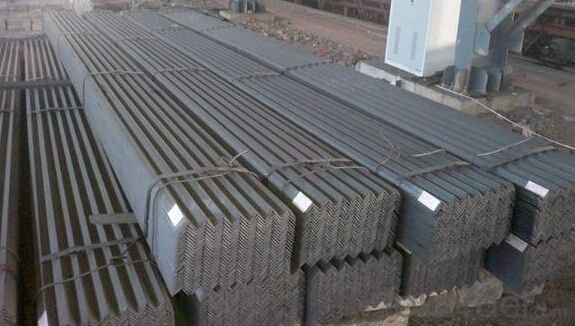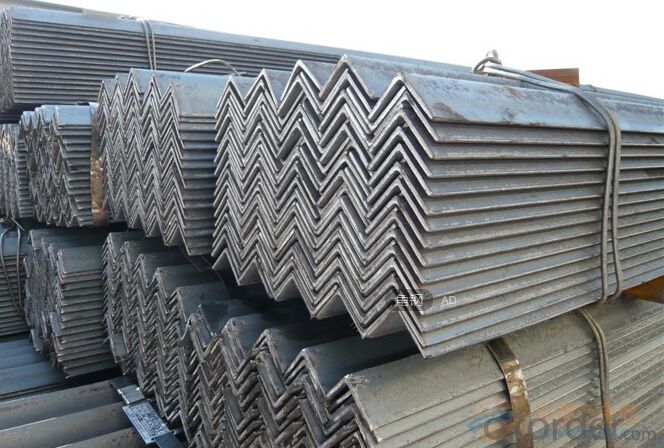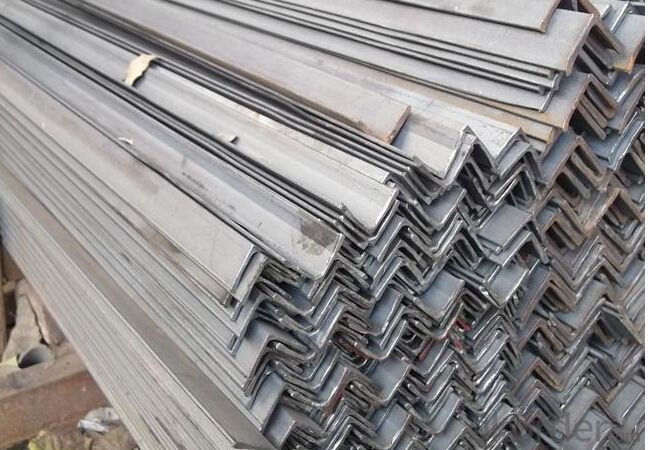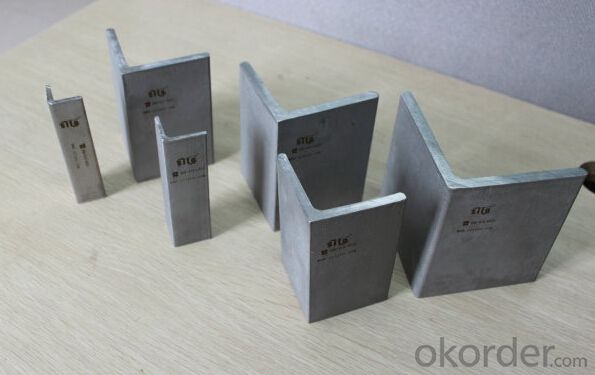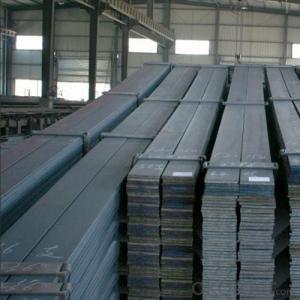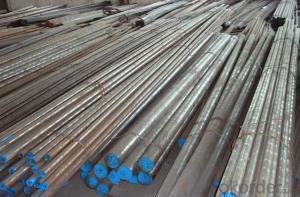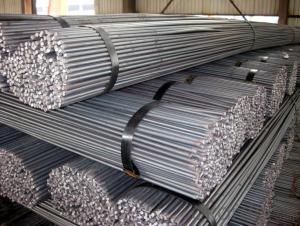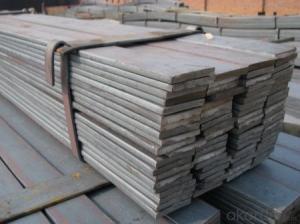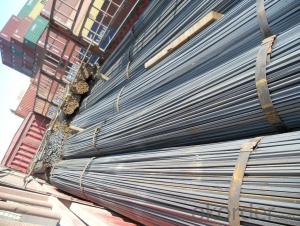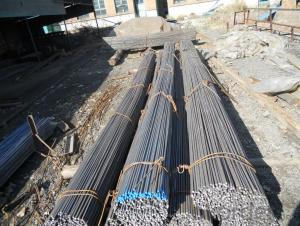Black Hot Rolled Mild Carbon Q235 SS400 A36 Steel Angle Bar
- Loading Port:
- Tianjin
- Payment Terms:
- TT or LC
- Min Order Qty:
- 3 m.t.
- Supply Capability:
- 10000 m.t./month
OKorder Service Pledge
OKorder Financial Service
You Might Also Like
Specification
Detailed Information
Name | Equal/Unequal Angle Steel Bar |
Shape | Equal/Unequal Angle |
Standard | GB/ASTM/SAE/AISI/DIN/JIS/EN/BS |
Surface Treatment: | Black/Peeling/Polished/Machined |
Delivery Condition: | Hot Rolled or Forged/Peeled or Black Surface |
Test | SGS/UT 100% Elements Testing |
Certificate: | ISO/Mill Certificate |
Service: | 24 hours online service / |
more than 20 years trading and manufacture | |
Quality Assurance: | the third party inspection, such as SGS, BV, TUV…etc. is acceptable |
Packaging Details: | Seaworthy Packaging or as per customer's packing instruction |
Specification
Name | angle bar |
angle bar standard | AISI, ASTM, BS,DIN,GB,JIS |
angle bar grade | A36, SS400, Q235, Q345, S235,S275 |
angle bar price | 25*3-200*20 |
angle bar length | 6-12m |
angle bar technique | Hot rolled steel angle |
angle bar tolerance | As the standard or as your requirement |
angle bar surface treatment | Galvanized, paint |
angle bar application | Metal structure, bridge, machiner, shipbuilding industry |
angle bar certificated | BV |
angle bar packing details | standard export packing or as your requirement |
angle bar MOQ | 3 tons |
angle bar delivery | Within 25 days after deposit |
angle bar payment | T/T or L/C |
Advantage of angle bar
1.Convenient in construction and save much time and labor
2.High mechanical strength
3.Low price, high quality
Company Introduction
CNBM International Corporation is the most import and export platform of CNBM group(China National Building Material Group Corporation) ,which is a state-owned enterprise, ranked in 270th of Fortune Global 500 in 2015.
With its advantages, CNBM International are mainly concentrate on Cement, Glass, Iron and Steel, Ceramics industries and devotes herself for supplying high quality series of refractories as well as technical consultancies and logistics solution.
Packaging & Delivery
Packaging Detail | Sea worthy packing /as per customer's packing instruction |
Delivery Detail | 15 ~ 40 days after receiving the deposit |
Products Show
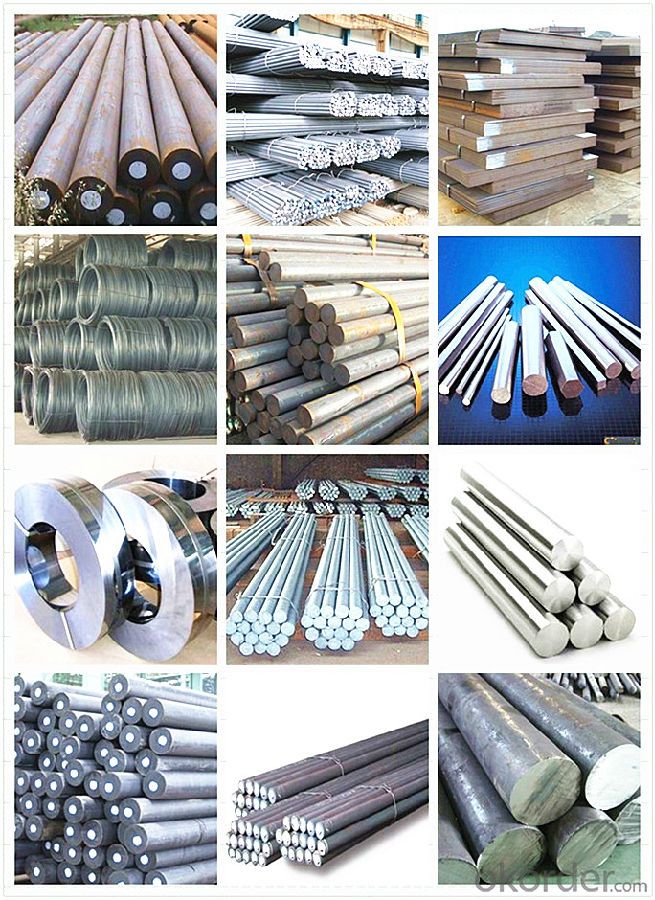
FAQ
Are you a trading company or manufacturer? | Manufacturer |
What’s the MOQ? | 3 metric ton |
What’s your delivery time? | 15-35 days after downpayment received |
Do you Accept OEM service? | Yes |
what’s your delivery terms? | FOB/CFR/CIF |
What's the Payment Terms? | 30% as deposit,70% before shipment by T/T |
Western Union acceptable for small amount. | |
L/C acceptable for large amount. | |
Scrow ,Paybal,Alipay are also ok | |
Why choose us? | Chose happens because of quality, then price, We can give you both. |
Additionally, we can also offer professional products inquiry, products knowledge train (for agents), smooth goods delivery, excellent customer solution proposals. | |
What's your available port of Shipment? | Main Port, China |
What’s your featured services? | Our service formula: good quality+ good price+ good service=customer's trust |
Where are your Market? | Covering more than 160 countries in the world |
- Q: How are tool steels used in the manufacturing of cutting tools?
- Tool steels are used in the manufacturing of cutting tools due to their excellent hardness, toughness, and wear resistance. These steels are specifically designed to withstand high temperatures, pressures, and repeated impacts during cutting operations. They are used to make various cutting tools like drills, milling cutters, saws, and blades. The high hardness of tool steels allows them to retain their sharpness for longer periods, ensuring efficient cutting performance. Additionally, their toughness helps withstand the mechanical stresses encountered during cutting, while their wear resistance enables them to maintain their cutting edges even after prolonged use. Overall, tool steels are crucial in the manufacturing of cutting tools, enabling precise and efficient material removal processes in various industries.
- Q: How does special steel contribute to the medical aftermarket industry?
- The medical aftermarket industry heavily relies on special steel, which is essential for producing top-quality materials needed for medical devices and equipment. Special steel, also known as stainless steel, offers a wide range of advantages that make it perfect for medical applications. Above all, special steel's resistance to corrosion and rust is of utmost importance in the medical field, where hygiene and cleanliness are crucial. Medical devices like surgical instruments, implants, and equipment require frequent sterilization, and the corrosion resistance of special steel guarantees their durability and long-lasting nature. Moreover, special steel possesses exceptional strength and hardness properties, making it suitable for medical implants and prosthetics. These implants must be able to withstand the stresses and strains of the human body while maintaining their structural integrity. Special steel provides the necessary strength and toughness required for these critical applications. Furthermore, special steel is biocompatible, meaning it does not cause any negative reactions or toxicity when it comes into contact with living tissues. This characteristic is vital for implants and devices that directly interact with the human body, as it minimizes the risk of rejection or allergic reactions. Additionally, special steel's versatility allows for easy machining and fabrication into complex shapes and sizes, meeting the diverse requirements of medical applications. It can be shaped into delicate surgical instruments, precise cutting tools, and even large-scale equipment like hospital beds and imaging machines. The high precision and dimensional stability of special steel contribute to the accuracy and reliability of medical devices, especially in areas like diagnostics and imaging. Precise measurements and high-quality images are essential for accurate diagnosis and treatment planning, and special steel helps achieve these goals. In conclusion, special steel's corrosion resistance, strength, biocompatibility, and versatility make it an invaluable material in the medical aftermarket industry. Its use in manufacturing medical devices and equipment ensures the highest standards of hygiene, durability, and performance, ultimately contributing to the advancement of healthcare and improving patient outcomes.
- Q: What are the different corrosion protection techniques used for special steel?
- There are several corrosion protection techniques used for special steel, including: 1. Coating: Applying a protective layer of paint, powder coating, or other chemical coatings helps create a barrier between the steel and the corrosive elements in the environment. 2. Galvanization: Immersing the steel in molten zinc creates a protective coating that prevents corrosion by sacrificing itself to protect the steel underneath. 3. Cathodic protection: This technique involves connecting the steel to a sacrificial anode made of a more reactive metal, such as zinc or magnesium. The anode corrodes instead of the steel, providing protection. 4. Passivation: Treating the steel with chemicals or an oxidizing agent forms a thin, passive layer on the surface, which helps prevent further corrosion. 5. Alloying: Adding specific alloying elements, such as chromium or nickel, to the steel composition can enhance its corrosion resistance properties. 6. Barrier protection: Using barriers like plastic coatings or rubber linings can physically isolate the steel from the corrosive environment, preventing direct contact and corrosion. 7. VCI (Volatile Corrosion Inhibitor): Packaging the steel in a material that releases special compounds, such as VCI paper or film, can create a protective atmosphere around the steel, inhibiting corrosion. These techniques can be used individually or in combination to provide effective corrosion protection for special steel, depending on the specific requirements and the environment in which the steel is exposed.
- Q: Classification of special steel products
- According to the carbon content of the steel can be divided into low carbon steel (WC = 0.25%), steel (0.25% WC 0.6%) and high carbon steel (wc>0.6%) according to the content of phosphorus and sulfur can be divided into ordinary carbon steel (carbon steel with phosphorus, sulfur, high quality carbon steel (P), low sulfur and high quality (steel) phosphorus, sulfur lower).In general, the higher carbon content in carbon steel, the higher hardness and higher strength, but lower plasticity. This kind of steel is mainly carbon steel to ensure mechanical properties, so the brand reflects its mechanical properties, represented by the Q+ number, "Q" to "yield point bend" word Pinyin prefix, a digital representation of the yield point value, such as Q275 said the yield point is 275MPa. If the grades are marked with letters A, B, C and D, the quality grade of steel is different. The quantity of S and P is reduced, and the quality of steel is improved. If the letter "F" is marked behind the grade, it is "boiling steel". The label "B" is a semi killed steel, and no "F" or "B" is used as a killed steel. For example, Q235-A = F indicates a yield point of 235MPa for grade a rimmed steel, and Q235-c represents a C grade killed steel with a yield point of 235MPa.
- Q: How does special steel contribute to the safety of infrastructure?
- Special steel plays a crucial role in enhancing the safety of infrastructure in various ways. Firstly, it offers exceptional strength and durability, allowing for the construction of robust and resilient structures. Whether it is used in bridges, buildings, or tunnels, special steel provides the necessary structural integrity to withstand extreme loads, such as heavy traffic, strong winds, seismic activities, or even potential terrorist attacks. Moreover, special steel possesses excellent corrosion resistance properties, making it suitable for infrastructure projects exposed to harsh environmental conditions. By preventing rust and decay, it extends the lifespan of structures and reduces the need for costly maintenance and repairs. This is especially important in coastal areas, where infrastructure is subjected to the corrosive effects of saltwater. In addition to its strength and corrosion resistance, special steel also offers exceptional fire resistance. It has a high melting point, which allows it to maintain its structural integrity under extreme temperatures. This characteristic is critical for infrastructure safety, as it provides additional time for evacuation and emergency response in case of a fire. Furthermore, special steel can contribute to the safety of infrastructure by enabling innovative design solutions. Its versatility allows for the creation of complex and efficient structures, such as long-span bridges or skyscrapers. These designs often incorporate special steel components, such as high-strength beams or columns, which enhance the overall stability and safety of the infrastructure. Overall, special steel's exceptional strength, corrosion resistance, fire resistance, and design flexibility make it an essential material for ensuring the safety and reliability of infrastructure. By utilizing special steel in construction projects, engineers and architects can create structures that can withstand various challenges, ultimately protecting the lives and well-being of the people who utilize them.
- Q: Can special steel be used in the aerospace defense industry?
- Yes, special steel can be used in the aerospace defense industry. Special steel alloys, such as titanium, stainless steel, and nickel-based alloys, are commonly used in aerospace applications due to their exceptional strength, corrosion resistance, and high-temperature capabilities. These materials are often employed in manufacturing aircraft components, rocket engines, missile systems, and other defense-related structures to ensure superior performance and durability in extreme conditions.
- Q: What are the different methods for improving the corrosion resistance of stainless special steel?
- There are several methods for improving the corrosion resistance of stainless special steel. Some of the common methods include alloying the steel with elements such as chromium, nickel, and molybdenum, which enhance its resistance to corrosion. Another method is passivation, which involves treating the steel with an acid solution to remove any surface contaminants and create a protective oxide layer. Coating the steel with materials like paint, powder coating, or electroplating can also improve its corrosion resistance. Additionally, proper cleaning and maintenance practices, such as regular removal of dirt and debris, can help prevent corrosion and maintain the steel's resistance over time.
- Q: How does special steel withstand extreme temperatures?
- Special steel is designed to withstand extreme temperatures due to its unique composition and manufacturing process. It contains a higher percentage of alloying elements, such as chromium, nickel, and molybdenum, which enhance its heat resistance properties. These alloys form a protective layer on the surface of the steel, preventing oxidation and corrosion at high temperatures. Additionally, special steel undergoes specific heat treatment methods, such as quenching and tempering, which further enhance its ability to withstand extreme temperatures without losing its strength and structural integrity.
- Q: Can special steel be used in the production of valves and fittings?
- Yes, special steel can be used in the production of valves and fittings. Special steel, such as stainless steel or alloy steel, offers enhanced corrosion resistance and durability, making it suitable for applications where valves and fittings are exposed to harsh environments or high-pressure conditions. Additionally, special steel can provide better performance in terms of temperature resistance and longevity, making it a popular choice for various industries, including oil and gas, chemical, and manufacturing.
- Q: Can special steel be welded?
- Yes, special steel can be welded. However, the specific welding process and techniques may vary depending on the type of special steel being used. It is important to have a good understanding of the particular steel's composition and properties to ensure proper welding procedures are followed.
Send your message to us
Black Hot Rolled Mild Carbon Q235 SS400 A36 Steel Angle Bar
- Loading Port:
- Tianjin
- Payment Terms:
- TT or LC
- Min Order Qty:
- 3 m.t.
- Supply Capability:
- 10000 m.t./month
OKorder Service Pledge
OKorder Financial Service
Similar products
Hot products
Hot Searches
Related keywords
